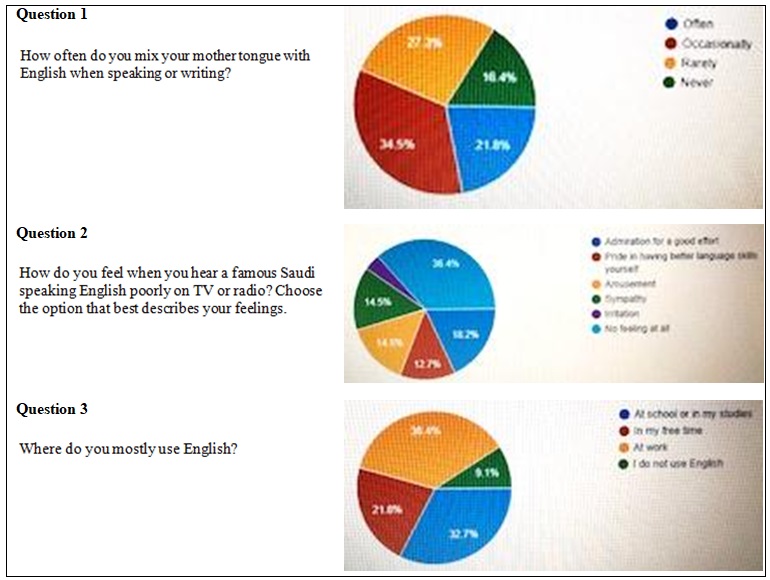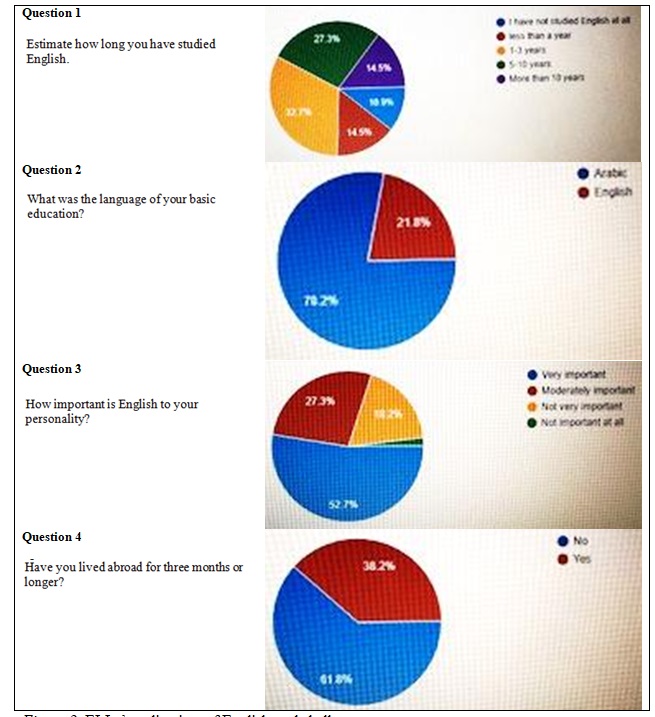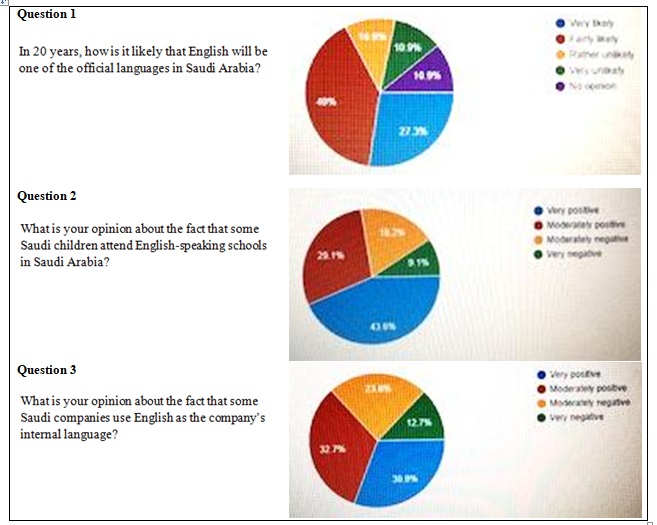Abstract
The research proposal will determine the major difficulties students face in an English-based curriculum as English Language Learners (ELL) or English First Learners (EFL). The research will come up with an understanding of grammar topics that are the most challenging things for these students. A total of 60 participants, all EFL students, are to be interviewed for purposes of proving or disproving the hypothesis by use of a questionnaire. Grammar and pronouncing are expected to be the major problem areas for the students who are not native speakers. Instilling communicative competence and creating awareness of grammar rules is the best option to solve the said difficulties.
Purpose Statement and Rationale
The research proposal will determine some of the major difficulties that English Language Learners (ELL) or English First Learners (EFL) students face in English-based curricula (Janzen, 2008). The proposed research works as error analysis and will identify some common problem areas. This is the rationale behind the purpose and hypothesis of the study. The research will affect researchers, teachers, and curriculum designers. This will play a vital role in determining the methods for imparting the required English language and communication skills (Abedi & Herman, 2010).
Three topics will be used in the research study. The first is the use of English tenses and challenges for English language learners. The second topic that will also be highlighted is the use of everyday words and challenges arising from the real-life application of the English language for English language learners. Last but not least, the third topic will be the impact of proficiency in the English language on future careers.
Statement of Qualification
English is a second language for me. So, I have a better understanding of the challenges that ELLs face. Additionally, I am a Computer Engineering student currently undertaking my degree.
Introduction
ELL students frequently face some difficulties in various classes, especially those that heavily depend on proficiency in the English language. It is important to note that teachers who work with ELL students can be unqualified to perform such duties (Abedi & Herman, 2010). The term ELL is used to describe students who are non-native English speakers and are learning English and may or may not participate in supporting programs. Furthermore, some ELLs can represent ethnic minorities, and due to their problems with the language are appointed to low-ability classes. If teachers are trained correctly and educated about the importance of feedback, the performance of students may also increase (Alghazo, Bani Abdelrahman, & Abu Qbeitah, 2009).
The importance of the topic is in its usefulness both to teachers who work with ELLs and ELLs themselves. If teachers understand the importance of feedback, active engagement, and difficulties that ELLs face during lessons, there is a chance that students will be able to understand how their performance can be improved with the teacher’s support. For me, it was interesting to understand what factors contribute to the underperformance of ELLs (such as poverty, instructional practices, student literacy, etc.). It is crucial to understand what exact difficulties ELLs face and how teachers can overcome them to increase the efficiency of their instruction and classroom assignments. With the growing number of immigrants in the United States, the approach to ELLs and their education should be changed. When their difficulties are examined and reviewed, teachers will have the opportunity to understand what actions should be taken.
The thesis of the paper is as follows: although instructional practices for ELL students exist and are adopted, teachers remain unaware of difficulties that these students face, which affects students’ performance. The author hypothesizes that if teachers are aware of difficulties ELLs have during their study, they can provide appropriate support, thus improving instructional practices and students’ performance. More specifically, the study attempts to answer the research questions.
Review of Literature
Janzen (2008) identifies several issues that ELLs face: linguistic issues, sociocultural issues, and the education of teachers. It is suggested to provide cultural support to students, for example, to create a project that would be connected to their culture. Savage, Bitterlin, and Price (2010) suggest that instruction should be interactive, include charts and pictures, as well as pronunciation practice. As language instruction depends on the context, teachers need to ensure that their instruction is not focused on isolated parts of the language (e.g., grammar).
However, Lee, Quinn, and Valdés (2013) argue that with the neatly developed design and the engagement of evidence, ELLs will be successful in learning even if they faced severe difficulties earlier. Lucas, Villegas, and Freedson-Gonzalez (2008) state that the input provided to learners should be slightly beyond their level of competence to avoid common difficulties. Shatz and Wilkinson (2010) go further and point out that the first language of the child should not be affected by the acquisition of the second language as it can affect their cultural identity. Baş and Beyhab (2017) point out that the theory of multiple intelligences can be used to eliminate some of the difficulties. Although different projects can indeed remove some difficulties, the challenges of students should not be overlooked. Some of the difficulties are impossible to eliminate with well-structured lessons. If no feedback is given, ELLs might lag in their knowledge. Education of teachers and their engagement is essential if one is trying to understand the reason behind ELLs’ failures.
Hill and Miller (2013) suggest providing explicit, interactive instructions to students together with tasks where students can use higher-order thinking. Alhasiany (2014) advises using the native language of students for support, both when teaching and providing feedback. As can be seen, both teachers’ involvement and instruction based on active interaction are desirable. Constant communication with students will help uncover other, less obvious difficulties that hinder the learning process.
Methodology
The survey method was selected for this project to address the purpose of this research. Online or web-based surveys provide researchers with opportunities to collect respondents’ answers regarding the problems or questions under discussion (Fowler, 2013). This approach allows for guaranteeing anonymity and quick collection and analysis of results with the focus on the percentage of answers provided by respondents. Thus, the survey for this study is based on a self-administered questionnaire that includes items and questions regarding participants’ experiences in learning English. Three questions are associated with using English in terms of its linguistic characteristics, four questions are related to the application of English in participants’ daily life, as well as to possible barriers associated with the process, and three questions cover the perspectives of using English in the future.
To address the purpose of the study and collect the most relevant data, the sample was planned to include 60 participants who belong to different age and gender categories or groups. These individuals live in Saudi Arabia and identify themselves as English language learners. The non-probability purposive sampling technique was used in this project to attract those participants who can provide the information required for this study (Fowler, 2013). However, it is also important to note that only 55 participants have answered all questions from the survey, and these data can be used for further analysis. Survey results received concerning this sample can contribute to understanding the experiences of ELLs in Saudi Arabia with the focus on possible challenges and drawbacks that can be observed in teaching practice.
Results and Discussion
The survey conducted with the help of a self-administered questionnaire has allowed for determining participants’ opinions regarding three topics identified for this study: ELL’s use of English grammar and associated challenges; ELLs’ use of everyday words and challenges associated with English application; the impact of proficiency in English on future careers.
ELL’s Use of English Tenses and Challenges
Figure 1 indicates that more than 50% of participants in total tend to mix the Arabic and English languages when speaking and writing. Respondents’ feelings regarding hearing other people speaking English are diverse because more than 18% support this effort, about 30% in total feel sympathy and amusement, and about 13% are proud of developing better skills. As a result, English is actively used at work (more than 30%) and school (more than 30%), and more than 20% use it during their free time. These results indicate that Saudis try to actively speak English, but they experience difficulties in using grammar and mix two languages. However, in spite of challenges, English is an important part of Saudis’ life, and they value efforts made by people for developing their skills (Al-Nasser, 2015; Mahboob & Elyas, 2014; Sadiq, 2017).

ELLs’ Application of English and Challenges
The survey results also demonstrate how Saudis apply English in their daily life with a focus on possible challenges (Figure 2). More than 30% of participants study English during 1-3 years and more than 27% during 5-10 years. However, the Arabic language is still mainly used in Saudi education. Although only nearly 38% of participants had the prolonged experience of living abroad, more than 50% discuss English as very important for them, and about 27% state that it is moderately important. During recent years, the number of ELLs has increased significantly as is observed concerning the number of years Saudis study English. This interest in the language is associated with the fact that teachers need to use more appropriate strategies and resources to overcome challenges in studying English (Alharbi, 2015; Sadiq, 2017).

Impact of Proficiency in English on Future Careers
The questionnaire included three questions associated with this topic. Figure 3 summarizes the participants’ opinions regarding these questions. It has been found that 40% of respondents are inclined to accept the idea that English will become the official language in Saudi Arabia in about 20 years, and nearly 28% support this idea. Furthermore, more than 43% of persons are positive about attending English-speaking schools, and almost 30% are moderately positive regarding this fact. The use of English in companies is supported actively or moderately by about 60% of participants, but more than 23% remain moderately negative regarding this tendency.

Thus, Saudis are oriented to accepting the fact that English will become actively used in their country shortly. They mainly support the trend of attending English-speaking schools for their children to develop skills as ELLs (Alrashidi & Phan, 2015; Mahboob & Elyas, 2014). Furthermore, they are also aware of the tendency of using English in the workplace and support this practice. However, some persons do not view this tendency as positive. ELLs understand the impact of their proficiency in English on their future as employees in Saudi Arabia.Figure 3. The impact of proficiency in English on future careers.
Conclusion
The conducted survey has indicated that ELLs try to actively use English in their daily life, but they experience difficulties with grammar and other aspects that make them mix the Arabic and English languages in their speech. It is possible to conclude that the necessity of using English at school and work can create additional challenges for these people if they do not receive adequate feedback and support from teachers. From this perspective, it is important to note that the tendencies identified with the help of this study should be taken into account by teachers when they design their lessons to meet students’ expectations, interests, and needs.
The other finding of the research is that ELLs have to actively apply English in their daily life even in Saudi Arabia, and they discuss English as important for their personality. As a result, teachers need to pay more attention to helping ELLs in developing their vocabularies depending on their daily activities to overcome possible challenges. Finally, the impact of proficiency in English on future careers is also supported concerning this study because many participants believe that English will play a critical role in the country in the future, and this aspect will affect their professional life. Thus, the study findings indicate that teachers need to pay much attention to determining the motivation of ELLs for studying English, identifying experienced problems and possible barriers, providing courses relevant for ELLs’ daily needs, teaching grammar rules, and guaranteeing appropriate feedback.
References
Abedi, J., & Herman, J. (2010). Assessing English language learners’ opportunity to learn mathematics: Issues and limitations. Teachers College Record, 112(3), 723-746.
Alghazo, K. M., Bani Abdelrahman, M. S., & Abu Qbeitah, A. A. (2009). The effect of teachers’ error feedback on Al-Hussein Bin Talal University students’ self-correction ability. European Journal of Social Sciences, 12(1), 145-159.
Alharbi, H. A. (2015). Improving students’ English speaking proficiency in Saudi public schools. International Journal of Instruction, 8(1), 105-116.
Alhasiany, F. (2014). English language learners. International Journal of Business and Social Science, 5(8), 38-43.
Al-Nasser, A. S. (2015). Problems of English language acquisition in Saudi Arabia: An exploratory-cum-remedial study. Theory and Practice in Language Studies, 5(8), 1612-1620.
Alrashidi, O., & Phan, H. (2015). Education context and English teaching and learning in the Kingdom of Saudi Arabia: An overview. English Language Teaching, 8(5), 33-39.
Baş, G., & Beyhab, Ö. (2017). Effects of multiple intelligences supported project-based learning on students’ achievement levels and attitudes towards English lessons. International Electronic Journal of Elementary Education, 2(3), 365-386.
Fowler, F. J. (2013). Survey research methods (5th ed.). Thousand Oaks, CA: SAGE Publications.
Hill, J. D., & Miller, K. B. (2013). Classroom instruction that works with English language learners. Alexandria, VA: ASCD.
Janzen, J. (2008). Teaching English language learners in the content areas. Review of Educational Research, 78(4), 1010-1038.
Lee, O., Quinn, H., & Valdés, G. (2013). Science and language for English language learners in relation to next generation science standards and with implications for common core state standards for English language arts and mathematics. Educational Researcher, 42(4), 223-233.
Lucas, T., Villegas, A. M., & Freedson-Gonzalez, M. (2008). Linguistically responsive teacher education: Preparing classroom teachers to teach English language learners. Journal of Teacher Education, 59(4), 361-373.
Mahboob, A., & Elyas, T. (2014). English in the kingdom of Saudi Arabia. World Englishes, 33(1), 128-142.
Sadiq, J. M. (2017). Anxiety in English language learning: A case study of English language learners in Saudi Arabia. English Language Teaching, 10(7), 1-10.
Savage, K. L., Bitterlin, G., & Price, D. (2010). Grammar matters: Teaching grammar in adult ESL classes. Cambridge, UK: Cambridge University Press.
Shatz, M., & Wilkinson, L. C. (2010). The education of English language learners: Research to practice. New York, NY: The Guilford Press.